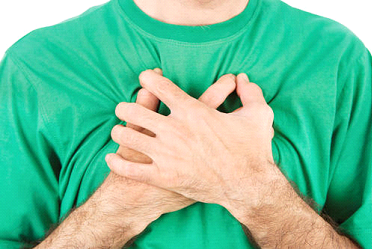Palpitation Symptoms, Causes, Risk Factors, Diagnosis and Treatment

What Is Palpitation ?
Palpitation is characterized as the feeling of having fluttering, rapid, fast or pounding heart. Heart palpitations might become activated by exercise, stress, medication or, sometimes due to any medical condition.
Even though, heart palpitations can be troublesome, usually they are not harmful. Sometimes, palpitations can occur as a symptom of serious heart diseases, for example, arrhythmia (an irregular heartbeat), that further need treatment. Generally, they are not harmful or serious. Several times, they are related to anxiety and stress or to ingestion of stimulants such as nicotine, caffeine, or alcohol. During pregnancy, Palpitations may also occur.
What Are The Causes Of Palpitations ?
Several things are linked to palpitations. Sometimes, either the cause is associated with heart or sometimes is unidentified. Palpitations causes which are not related to the heart include:
- Strong or powerful emotions like stress, fear, anxiety; palpitations occur often in panic attacks.
- Excessive physical activity
- Nicotine, Caffeine, alcohol, or illegal drugs for example amphetamines and cocaine.
- During pregnancy or menstruation, hormonal change occurs: or sometimes during the perimenopausal period. Occurrence of palpitation during pregnancy is anemia sign.
- Drugs, comprising decongestants, diet pills, inhalers used for asthma as well as several medicines utilized to stop arrhythmias or treat thyroid related problems.
- Several herbal as well as nutritional supplements.
- Irregular electrolyte levels.
What Are The Risk Factors Of Palpitation ?
There is an increased risk of developing palpitations if a sufferer:
- Is stressed highly.
- Suffering from an anxiety disorder or frequently experiencing panic attacks.
- Is pregnant.
- Using drugs that contain stimulants, like cold or asthma therapies.
- Is having hyperthyroidism.
- Have a heart related problems, for example, arrhythmia, heart attack or defect.
What Are The Symptoms Of Palpitations ?
Palpitations can result in a feeling that your heart is:
- Fluttering
- Skipping heart beats
- Beating very rapid
- Pumping very hard.
Palpitation may feel like that it is in your neck or throat, along with your chest. Palpitations can occur anytime even when you are at rest or doing any physical activity.
If heart condition is the reason of palpitations, there is an increased risk of complications. For heart related palpitations, possible complications consist of:
- Cardiac arrest.
- Heart failure
- Fainting.
- Stroke.
How Palpitation Is Diagnosis ?
If a doctor thinks that you are suffering from palpitations, he will listen to your heart sound by the help of a stethoscope. It is essential for doctor to find out other sign and symptoms associated to other medical state that can result in heart palpitation, such as a swollen or underactive thyroid gland.
Other exams may conduct by your doctor include:
- Holter monitoring.
- Echocardiogram.
- Electrocardiogram (ECG).
- Event recording.
How Palpitation Is Treatment ?
Palpitations can be treated after determining the fundamental cause and situation of the abnormal rhythm of heart as well as tailored to the specific needs of patient.
The drug therapy depends on the underlying palpitations cause. It is given to control the normal rhythm and the rate of heart. Other ways to treat it may include surgical techniques or ablation to remove the underlying palpitations cause.
Defibrillators and Pacemakers may be specified if life-threatening disorders are palpitations cause.
By : Natural Health News




